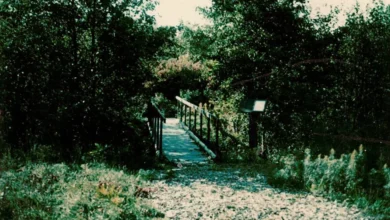Dirty Boulevard: Lou Reed in New York City


 Spanning through his entire career, from Andy Warhol’s Factory to Lincoln Center, New York City had a profound influence on nearly every one of Lou Reed’s artistic endeavors. His writing often resembled brief snapshots of where he was in life at the time, and how he viewed the world.
Spanning through his entire career, from Andy Warhol’s Factory to Lincoln Center, New York City had a profound influence on nearly every one of Lou Reed’s artistic endeavors. His writing often resembled brief snapshots of where he was in life at the time, and how he viewed the world.
Using simple, observational lyrics as a tool to highlight underlying issues of society, Reed had the ability to establish an emotional bond between the listener and almost any subject using only a few words.
His 1989 album, New York, reflects Reed’s view of New York City at the time, and expresses the Syracuse University graduate’s frustration with the constant rejection of humanity and disregard for others he saw daily.

 ‘Dirty Boulevard,’ the number one hit off New York which topped the charts for four weeks, depicts life in Manhattan from the point of view of a down-and-out, yet naively hopeful, immigrant named Pedro living in a run-down hotel.
‘Dirty Boulevard,’ the number one hit off New York which topped the charts for four weeks, depicts life in Manhattan from the point of view of a down-and-out, yet naively hopeful, immigrant named Pedro living in a run-down hotel.
Pedro represents how the other half of New York lives; away from the fancy limousines, nights out to the opera at Lincoln Center and five-star hotels.
Despite having almost nothing and living in a city that steals from him the little he does have, Pedro never loses faith in the American dream and the idea that one day he will be a part of the social elite he lives to serve.
Unfortunately, Pedro will never reach his goal, and like so many others, ends up flying away to the dirty boulevard to live with the drug dealers, thieves and “degenerates.”
Reed’s frustration with New York in “Dirty Boulevard” stems from the idea that the United States lies to immigrants and the poor, and treats the lower-class like second-rate citizens. ”
“Give me your hungry, your tired, your poor. I’ll piss on ’em,” Reed wrote.
In a 1989 interview on the subject he describes the upper class as having “a complete disregard for the other guy or woman or child, and a complete rejection of any kind of humanity and unrelieved viciousness for laughs.”

 Read more about Lou Reed’s time in New York City in an essay by Ryan Randazzo at our arts and culture reporting partner NYS Music.
Read more about Lou Reed’s time in New York City in an essay by Ryan Randazzo at our arts and culture reporting partner NYS Music.
NYS Music offers daily music reviews, news, interviews, video, exclusive premieres and the latest on events throughout New York State and surrounding areas. Subscribe to their newsletter here.
Photo: Lou Reed stands in front of Big Nick’s Burger and Pizza Joint at Broadway and 77th Street in the summer of 1984 (East Village Eye, from a story published at the release of his New Sensations LP (hat-tip to Ephemeral New York); and Lou’s Reed 1989 New York album cover.
Source link





